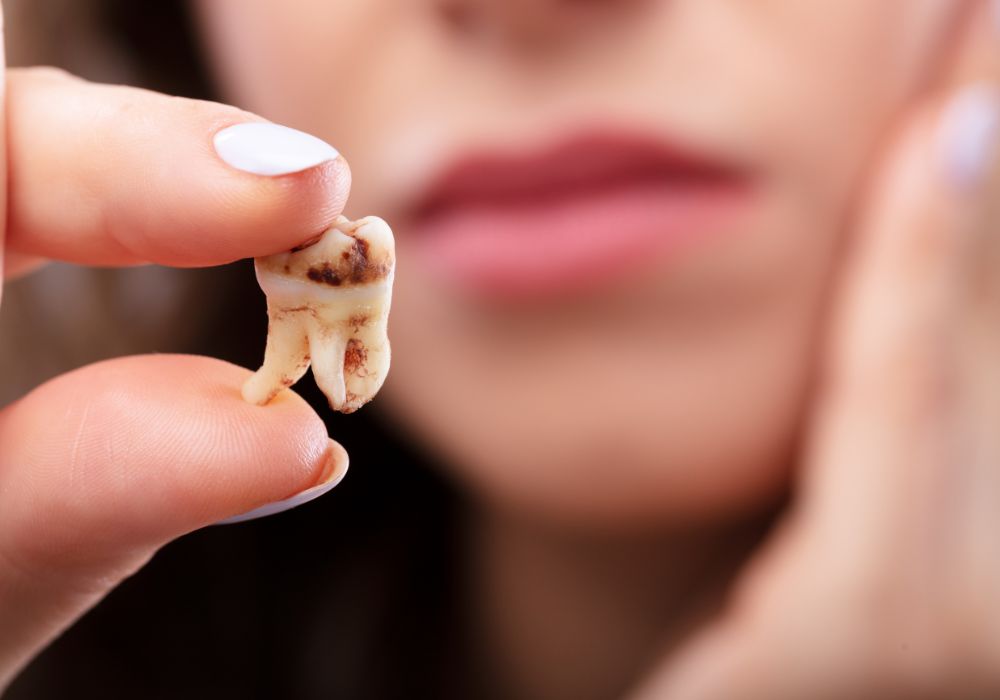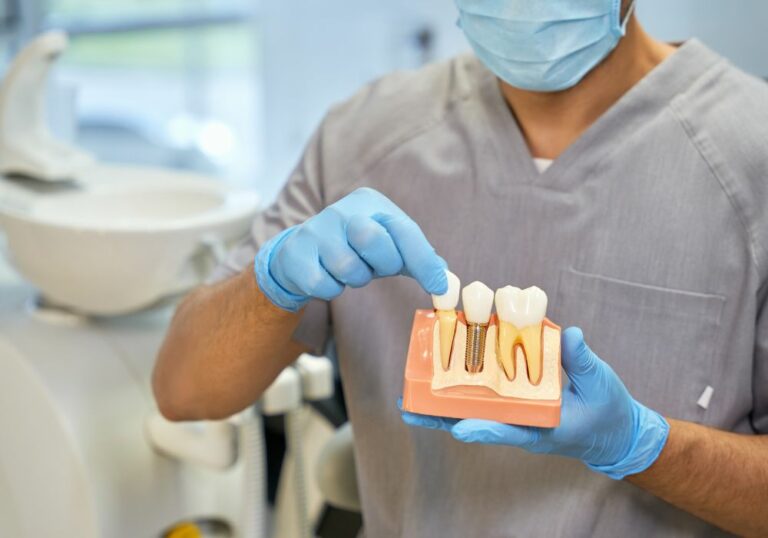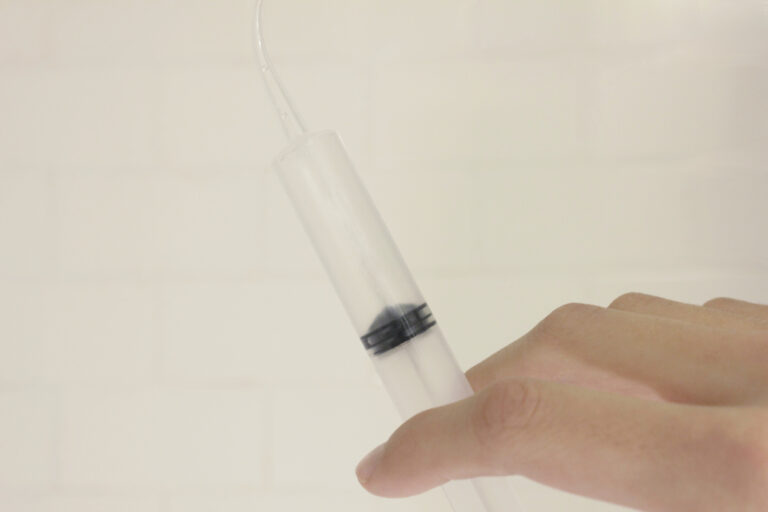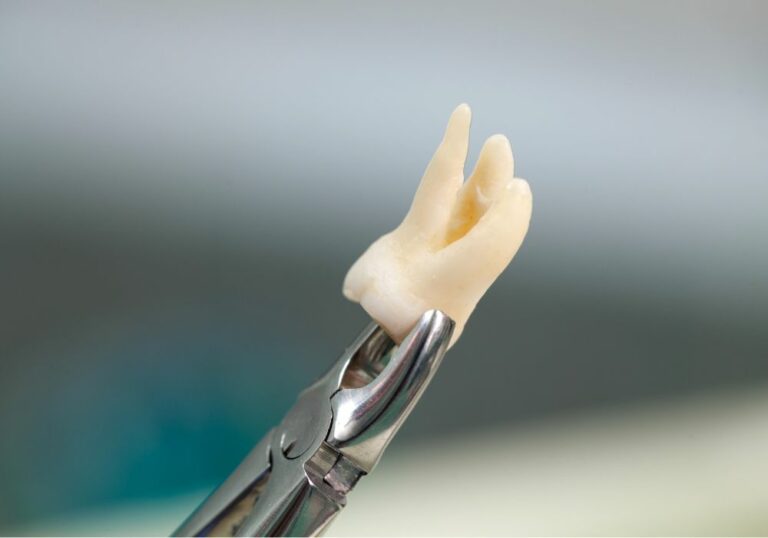For those who have undergone or will soon undergo wisdom teeth extraction surgery, the recovery process can seem daunting. While the first couple of days are expected to be uncomfortable, many patients report day 3 after surgery brings the worst pain and swelling.
Understanding the wisdom tooth extraction procedure, the post-operative healing timeline, and why the third day is often so difficult can help you be prepared to better manage your recovery.
Details on wisdom teeth extraction

Wisdom teeth are the third and final set of molars located at the very back of the jaw. Most people have 4 wisdom teeth – one in each corner. These teeth typically emerge sometime between ages 17-25 years old.
Why wisdom teeth need to be removed
There are several reasons dentists recommend wisdom tooth extraction:
- Impaction – Partially erupted or trapped under gum tissue due to lack of space
- Pericoronitis – Infection around partially impacted tooth
- Cysts – Fluid-filled sacs around impacted teeth pressing on nerves
- Tooth decay – Difficult to clean back teeth prone to cavities
- Orthodontic reasons – Improve dental alignment after wisdom teeth crowd other teeth
- Prophylactic – Prevent future problems if impacted teeth likely
When wisdom teeth become problematic, surgical extraction is often necessary.
Details of the wisdom tooth extraction procedure
Wisdom tooth removal is done as an outpatient procedure, either in the dentist’s office or oral surgeon’s office depending on complexity. The steps include:
- Anesthesia – Local anesthesia is injected to numb area around the tooth. IV sedation may also be used for more anxious patients.
- Incision – An incision is made in the gum tissue around the impacted wisdom tooth to expose it.
- Bone removal – Some bone may need to be removed around the tooth to loosen it.
- Tooth sectioning – The tooth may be cut into smaller pieces to remove it easier.
- Tooth removal – The tooth pieces are removed one by one, and the socket is irrigated.
- Stitching – The incision may be closed with stitches or left to heal naturally.
- Follow-up care – Instructions are given for pain management, diet, oral hygiene during recovery. Follow-up visit ensures proper healing.
With modern techniques, wisdom tooth extraction is highly successful with smooth recovery for most people.
What to expect in wisdom teeth removal recovery
Recovery from wisdom teeth removal involves dealing with moderate pain, swelling and other discomforts for about 7-10 days as the surgical sites heal. Typical healing timeline:
Day 1
- Anesthetic wearing off causes increasing pain
- Face swollen, jaw stiff
- Bleeding from extraction sites
- Nausea, headache from anesthesia
- Diet limited to soft foods
Day 2
- Swelling and pain worsens
- Bruising around cheeks and jaw
- Fatigue from discomfort and painkillers
- Oral hygiene disrupted (can’t brush around surgery sites)
- Difficulty talking, opening mouth fully
Day 3
- Peak of pain, inflammation and swelling
- Jaw extremely stiff and painful
- Bleeding has usually subsided
- Bad breath from poor oral hygiene
- Difficulty eating and drinking
Day 4
- Pain, swelling slightly improved from previous day
- Medications tapered, less numbness
- Increase oral hygiene
- Gradually resume more normal diet
Day 5 – 7
- Noticeable decline in swelling and pain
- Less fatigue and more energy
- Able to open mouth wider
- Slowly transition to regular food
Day 8 – 14
- Swelling gone, mainly residual soreness
- Stitches dissolved or removed
- Regular brushing and flossing resumed
- Back to normal physical activity
2 weeks +
- Little to no pain at extraction sites
- Safe to resume exercise and sports
- Healing complete by 6-8 weeks
With this general timeline, let’s discuss why day 3 is often the peak of discomfort and difficulty for wisdom teeth removal recovery.
Why the third day after surgery is the worst

While we expect some pain and trouble eating and sleeping for a couple days after having wisdom teeth out, the third day is when many patients report reaching their limit. Understanding why this timeline occurs can help you anticipate and prepare both mentally and physically.
Inflammation and swelling peaks
The inflammatory response by the body is in high gear on days 3-4 as it reacts to the surgical trauma on the jaw. The immune system rushes to the area, causing maximum swelling around the cheeks and mouth.
This swelling and inflammation puts significant pressure on the nerves in the surgical sites. The compression of soft tissues is what amplifies the throbbing, constant pain during this time. Pain levels on day 3 after wisdom teeth extraction are often scored 8-9 on the pain scale of 10 by patients.
Medications start wearing off
Prescription painkillers and local anesthetic given during surgery help numb pain initially but start to wear off by day 3. As the mouth and gums become less numb, the discomfort of the swelling and inflammation is felt more acutely.
Over-the-counter pain medications like ibuprofen or acetaminophen may not provide the same level of relief in comparison to the prescribed narcotic drugs. The transition between pain management methods leaves many patients feeling greater pain by day 3.
Oral hygiene deteriorates
With stitches in the surgical sites, patients are advised not to brush or floss around those areas for 48-72 hours after wisdom teeth are pulled. This allows oral bacteria to rapidly accumulate by day 3.
The bacteria irritate the tender gum tissue and slow the healing process. Poor oral hygiene also leads to bad breath. All this adds to the pain and discomfort especially when chewing or swallowing.
Eating and drinking becomes more difficult
The peak swelling on days 3-4 also means trismus (stiffness of the jaw muscles) is at its maximum. Opening the mouth even slightly feels like an impossible task. The jaw pain also intensifies when you try to use those muscles.
This makes basic tasks like drinking water or eating soft foods very painful. Dehydration from poor fluid intake along with inadequate nutrition adds to the misery. The thought of having to constantly battle pain just to consume calories and liquids is mentally exhausting.
Recovery fatigue sets in
By day 3, the excitement or adrenaline rush from having the dreaded wisdom tooth surgery behind you fades. As the days drag on with constant pain and swelling, frustration and surgery fatigue start to take hold.
Coping with interrupted sleep, side effects from medications, and the daily struggle of eating and drinking wears the body down both physically and emotionally. The prolonged discomfort and lifestyle disruption feels never-ending by this third day mark.
Fear of complications
For some patients, the worsening pain several days after surgery sparks worry about potential complications like infections or dry socket. This fear and anxiety adds further stress on top of the physical recovery challenges.
The combination of all these factors is why days 3 and 4 tend to be rated as the peak of misery and hardship from wisdom teeth removal by those recovering from this common surgical procedure.
Tips to better manage the third day after wisdom tooth extraction

While the third day may be difficult, there are some ways to proactively prepare for this timeline and cope through the roughest part of your recovery:
Start ice therapy early
Icing the face for 10-20 minutes several times a day helps limit inflammation and swelling. Begin this immediately after surgery rather than just when swelling occurs. Applying ice packs to the cheeks on day 3 when the inflammation peaks can provide significant pain relief and numbness.
Take medications correctly
Follow your surgeon’s instructions for pain management very carefully, even as the pain improves after the first few days. Tapering drugs too quickly on day 3 may make you feel worse. Time the doses to ensure effective pain relief is maintained.
Maintain oral hygiene vigilantly
Once given the all-clear to start gentle brushing and saltwater rinses on day 3, be diligent about slowly increasing oral hygiene. Prevent bacteria from accumulating and worsening pain.
Adjust diet as needed
Trying to eat normal foods despite the pain will be agonizing around day 3. Stick with cooler, smooth textured liquids and purees. Stay hydrated to avoid dehydration headaches.
Use humidifier
Keep the air moist with a humidifier. This prevents the surgery site from drying out and lessens chances of developing the very painful dry socket complication.
Take time off if needed
If possible, take a day or two off work around days 3-4 to better cope with the peak pain phase. You will recover quicker with more rest. Having help around the house also lowers stress.
Distract yourself
Find leisurely ways to distract yourself from the discomfort like watching movies, reading books, listening to music, playing games. Naps are helpful too but avoid sleeping excessively.
Be prepared for the timeline
Simply understanding why day 3 is often the peak pain and difficulty day emotionally prepares you to endure it. Having the expectation helps you handle it better for a smoother recovery.
While the third day after wisdom teeth removal surgery may still be challenging, proactively taking measures to manage pain and inflammation can significantly improve the experience. With some patience and diligence, you will move past this recovery peak towards feeling normal again soon.
Frequently Asked Questions
Q: How long does wisdom tooth pain last after surgery?
A: Pain and swelling typically peak on days 3-4 before gradually improving over the next 7-10 days. Complete healing can take several weeks.
Q: What helps with wisdom tooth pain on day 3?
A: Using ice packs, taking prescription painkillers as directed, numbing rinses, drinking lots of fluids, eating soft foods, and resting help manage third day wisdom tooth pain.
Q: When can I resume normal activity after wisdom teeth removal?
A: After the first 3-4 days, you can gradually return to normal activities as swelling and pain diminish. Avoid strenuous activity for at least 1-2 weeks per your surgeon’s advice.
Q: What are signs of dry socket after wisdom tooth extraction?
A: Dry socket – bone exposure in the surgery site – causes throbbing pain starting a few days after surgery. Foul taste, bad breath and ear pain on the surgery side may occur. See your dentist promptly if these symptoms arise.
Q: When can I start brushing teeth again after wisdom tooth removal?
A: Very gentle brushing can usually be resumed 48 hours after surgery. Avoid disturbing the surgery sites for at least a week. Use special toothbrushes and rinses to keep area clean in the meantime.
Q: How can I minimize bruising after wisdom tooth extraction?
A: Using ice packs for the first 48 hours helps constrict blood vessels and reduce bruising. Avoid eating hard, crunchy foods. Stay hydrated, rest with head elevated to diminish facial bruising.
Q: Why does my jaw hurt so much on day 3 after wisdom teeth removal?
A: The swelling and inflammation puts pressure on the jaw muscles leading to pain and reduced mobility known as trismus. This typically peaks on day 3 as the immune response is in high gear before gradually improving.
Q: Is numbness after wisdom tooth extraction normal?
A: Some temporary numbness lasting a few weeks around the lips, tongue, chin and gums is common after the surgery trauma. Permanent numbness is rare. Let your surgeon know if strange sensations last more than a month.
Q: When can stitches be removed after wisdom teeth extraction?
A: If non-dissolvable sutures were placed, they are typically removed after 5-7 days once the gums have re-sealed. Dissolvable stitches may last 7-14 days before disappearing.
Q: How can I talk normally on day 3 when my mouth is so swollen?
A: Don’t worry about slurred, muffled speech on day 3 when swelling peaks. Use gestures, write notes, type messages if needed. Drink warm fluids to ease jaw stiffness. Gargle salt water. Speech should slowly improve once swelling resolves.






